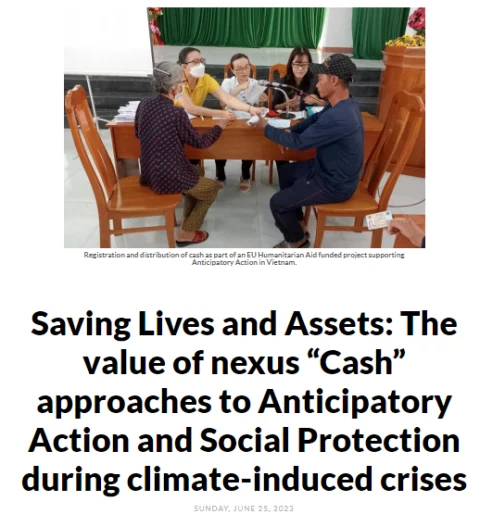Saving Lives and Assets: The value of nexus “Cash” approaches to Anticipatory Action and Social Protection during climate-induced crises

As a follow-on reflection from an inter-agency panel presentation at the ECHO EHF 2023, panelists highlight the importance of drastically changing “gear” to scale up pre-crisis Anticipatory Action investment, leveraging the “nexus” enabler – cash.
Humanitarian needs have reached an unprecedented high. Today, around 339 million require lifesaving humanitarian assistance. Multiple protracted conflicts, coupled with a rise in global food prices and the increasingly devastating impacts of climate change are further exacerbating the situation. Whilst the gap between global needs and available resources continues to expand, financial capacities for humanitarian action are diminishing.
In the face of such challenging conditions, solutions can be found through the use of effective Anticipatory Action (AA) and Social Protection measures. According to the Global Commission on Adaptation, an investment of US$800 million in early warning systems and Social Protection leveraging Anticipatory Action in developing countries could avoid losses of $USS 3–16 billion per year, as the COP27 participants agreed on raising investment for a “Loss and Damages” fund for the most climate-affected nations. Leveraging cash voucher assistance (CVA) as a key component for longer-term and holistic Social Protection that is gender-sensitive, with science-based triggers for improved and more cost-efficient shock-preparedness, mitigation and response is very promising and warrants further in-depth engagement by multi-stakeholder groups, as the example of two CCD member organisations (CARE and World Vision) with local partner organisations, including IMHEN in Vietnam showcase.


